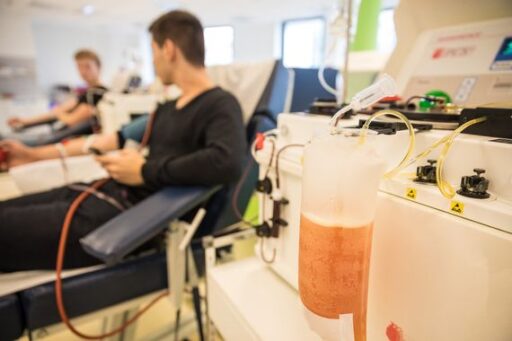October 12, 2021
Plasma shortage in Europe: proper investment in public blood establishments is the answer, not undermining ethical principles
News
PRESS RELEASE
As Members of the European Parliament start considering the future of the EU Blood Directives, European not-for-profit Blood Establishments reassert that the solution to ensure continued and safe access to life saving products based on human plasma does not lie in remunerating plasma donors, nor “compensating” them to sometimes a level of 3 times the average hourly wage, but instead call on the European institutions and Member States to focus on how they can support not-for-profit establishments in creating or expanding national public plasma collection systems.
The European Blood Alliance (EBA) as an association of non-for-profit European Blood Establishments underlines that reinforcing the principle of voluntary non remunerated donation is not just an ethical imperative regularly reasserted by the Council of Europe and Bioethics institutions, as plasma is a human component and not a commodity, it is also a fundamental prerequisite for Europe to meet the needs of EU patients with high quality blood products, including plasma.
The revision of the EU Blood Directives is a tremendous opportunity for the EU to make progress in plasma collection and become less dependent on plasma from third countries, namely the US. This will necessarily require greater investment in expanding dedicated plasma collections programmes, increasing donor pools as well as other important measures such as training programmes to avoid plasma wastage or unnecessary prescription.
Blood services have witnessed that plasma commercial suppliers entering and leaving the market have left some blood systems disrupted, both in donor bases and supply. Furthermore, in some Member States, the development of commercial plasma collection centres, operating with paid donors, is eroding the voluntary donor base for blood products and jeopardizing the sustainability of the supply of the full range of blood products. Blood establishments are concerned about an approach to “compensation” which has a negative impact in the medium to long-term sustainability of supply. Therefore, Member States should not become dependent on the private sector, and changeable market factors, to increase and ensure the sustainable provision of plasma, but rely and invest in a well-functioning not-for-profit sector to collect and provide this essential product and service.
Finally, there is currently no scientific evidence demonstrating that introducing remunerated donations will not have a negative long-term impact on donors’ health, blood products and ultimately the patients whose needs we are working to meet. We know what needs to be done so Europe can be more strategically sufficient in all blood products: a Europe-wide effort to invest in not-for-profit plasma collection programmes which does not compromise whole blood donations and that prioritises patient and donor safety and high-quality blood products. Undermining long-standing ethical principles should not be on our list.
Nb: this email is send ahead of “The revision of the EU Blood Directive – considerations on Voluntary Unpaid Donations and plasma donors” held on 12 Oct, 2021 by the Plasma Protein Therapeutics Association (PPTA) and co-hosted by MEPs Clune, Sokol and Maxova

